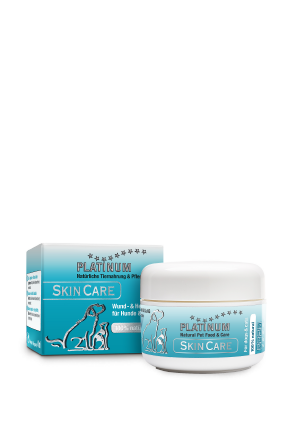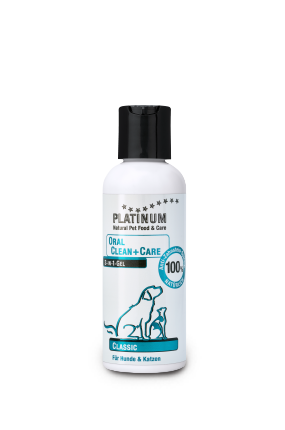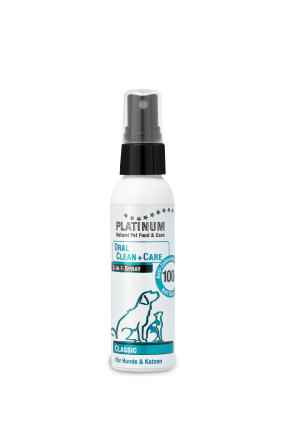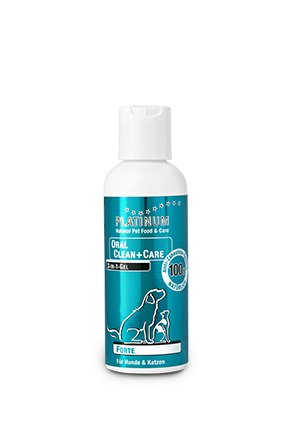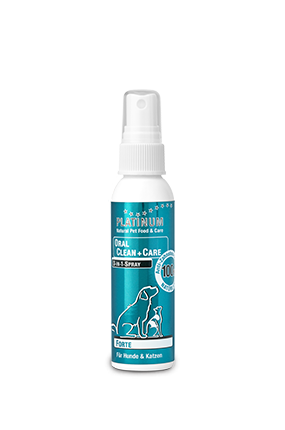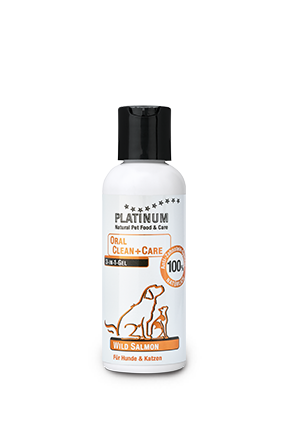Tu atrodies šeit: /
Zobu kopšana suņiem un kaķiem
Why is dental care important?
A regular dental care for dogs and cats does not only take care of pretty teeth, but also protects against bad breath, plaque, tartar or inflammations of the gum. A common and useful hint is tooth brushing. But the experiences of many cat and dog owners have shown, that this is difficult to realize. Would one start with dental care on puppies and kittens, the acceptance surely would be higher. But only a few use tooth brushes in this age, because the teeth normally are perfectly clean.
Tartar develops over time. In many cases, plaque or tartar is detected from an age of two to three years. After that, removing the tartar with a toothbrush is not easy. In addition, dogs and cats are rejecting it and some areas, especially between the teeth and in the gingival pockets, are very difficult to clean with a toothbrush. Most toothbrushes disappear in the drawer after a few attempts and remain unused in the future. It would be wrong to let the dental care rest now, because after some time it will get worse and a visit at the vet will be unavoidable.
The consequences of insufficient dental care
Most of us know quite well what it means to have bad teeth: First, toothache appears, then the unpleasant procedure at the dentist follows. The consequences of an insufficient dental care on dogs and cats are not different.
On the contrary: they can be even more fatal, as the pets must be under general anaesthetic during larger interventions. Of course, most pet owners don’t want to do this to their cat or dog. That is why there is already a need for action at the first signs of tartar. You don’t have to go to the vet right away, but rather you can take action on the dental care of your pet by yourself. Unfortunately, only a few dogs and cats tolerate brushing teeth, but thankfully there is a very good alternative: Simply spray OralClean+Care on your pets teeth or apply the product on the teeth in gel form. With regular use, you will be amazed at how positively this affects the dental health of cats and dogs. The basis for this is created by a citrus seed extract, which is used in natural medicine as an antibacterial remedy. In combination with essential herbal oils, it supports the cleaning of teeth, promotes the removal of tartar and thus the entire mouth health.
How can I promote dental care?
Dental problems on dogs and cats can be more or less strong. On the one hand, these are related to the nutrition and care of the teeth, but they can also be genetic: Some breeds, especially small and short-snouted dogs, are particularly predestined for this. The extent of the necessary dental care can therefore vary greatly from pet to pet.
Our hints for natural care for your dog´s teeth
Here are some useful hints for the best possible natural care for your dog´s teeth:
- Avoid hard and rough objects for playing and chewing (for example stones or tennis balls). They damage the surfaces of the teeth and roughen them which enables plaque and tartar.
- Forgo mushy grain based food, like soaked flakes, etc. They immediately cover the teeth with a coating. Generally wet food is no problem.
- Cleaning the outside of the last back teeth can be supported by appropriate chewing articles. They abraze the coating and satisfy the natural desire of chewing. Other surfaces of the teeth, also the front teeth are not benefited by chewing products. Dogs naturally gorge and those teeth are not used for chewing anyway.
- Forgo sugared snacks.
- Use appropriate dental care products for dogs. It is recommendable adjusting dogs to the cleaning of the teeth when they are still puppies.
- Be careful with dragging games or similar, they can damage the teeth.
- Regularly check the oral cavity, teeth and gum. In doing so injuries, inflammation and changes are noticed at an early stage and medicated in time.
- Make sure the pet exercises enough. Increased intake of air through panting manipulates the oral microflora positively.
- Use our Oral Clean+Care Classic or Oral Clean+Care Forte products for prevention.
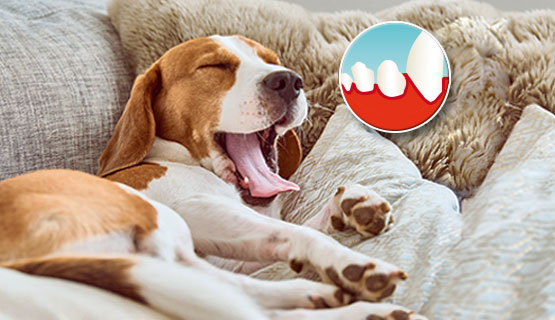
Gum inflammation in dogs & cats
Learn more
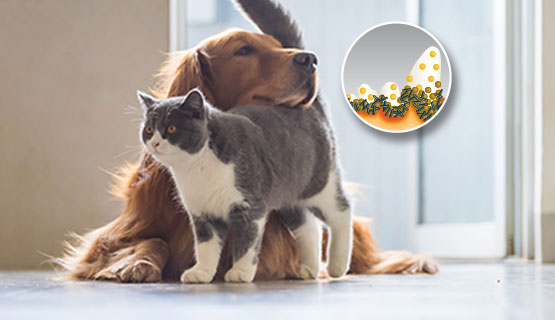
Tartar in dogs & cats
Learn more
